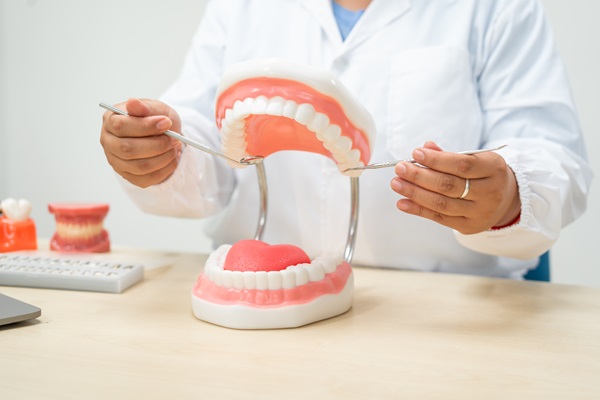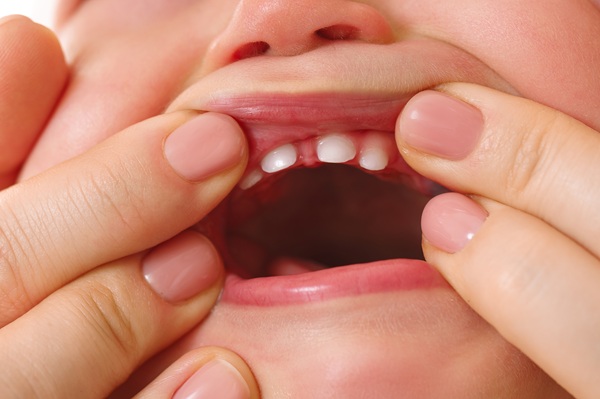Here at Bellevue Hill Dental, we believe that healthy gums are the key to a healthy mouth.
In general dentistry, taking good care of your gums is important not just for your oral health, but also for your overall wellness. Knowing how to care for your gums can greatly lower your chances of getting gum disease and help keep your smile looking great.
With this, we’ll discuss simple ways to care for your gums, why it’s important, and the signs of gum disease you should watch out for.
Let’s dive right in!
Why Gum Care Is Important
When it comes to your mouth’s functions, you might think that your teeth do all the action. Actually, your gums also play a crucial role in supporting your teeth and keeping your mouth healthy.
Having healthy gums could create a protective barrier against bacteria and other harmful agents. Neglecting gum care can lead to various dental issues, including gingivitis and periodontitis, which are the first stages of gum disease. Gum disease can cause not only tooth loss but also has been linked to other health problems, such as heart disease and diabetes.
Read: Does Dental Hygiene Affect Your Heart Health?
The Basics of Gum Care
Now that we’ve established that gums also assist our teeth in keeping our oral health in good shape, taking care of your gums also begins with establishing a solid oral hygiene routine. Here are some fundamental practices to incorporate into your daily life:
Brush Your Teeth Regularly
While you may think brushing your teeth is just for your teeth, brushing your teeth at least twice a day is also important for healthy gums.
Use a soft-bristled toothbrush and fluoride toothpaste to gently clean along the gum line. This helps remove plaque, a sticky layer of bacteria that can cause gum disease if not properly controlled. Try to brush for at least two minutes to ensure a complete cleaning.
Floss Daily
Flossing is essential for gum care as it removes food particles and plaque from between your teeth and under the gum line where your toothbrush may not reach. Make it a habit to floss at least once a day, preferably before bedtime. If you don’t know how to floss correctly, ask your dentist for guidance on some flossing techniques.
Use Mouthwash
Incorporating an antibacterial mouthwash into your oral hygiene routine may help reduce plaque and fight gum disease. Look for mouthwashes that contain active ingredients like chlorhexidine or essential oils. Rinse as directed, usually after brushing and flossing, to achieve optimal gum care.
The Importance of Regular Dental Check-Ups
Regular visits to your dentist are a cornerstone of effective gum disease care. During these check-ups, your dentist will assess your gum health, provide professional cleanings, and identify any early signs of gum disease. Here’s what you can expect during a typical dental visit:
Comprehensive Exam
Your dentist will perform a thorough examination of your teeth and gums, checking for any signs of inflammation or recession. They may also take X-rays to assess bone health around your teeth.
Professional Cleaning
A dental hygienist will perform a professional cleaning to remove plaque and tartar that regular brushing and flossing may miss. This deep cleaning helps prevent gum disease and promotes healthier gums.
Personalised Advice
Depending on your oral health, your dentist may give you personalised advice for taking care of your gums. This could include suggestions on brushing and flossing methods or products that would be helpful for your particular needs.
Knowing the Signs of Gum Disease
Understanding how to take care of your gums also involves being vigilant about the signs of gum disease.
Early detection is key to preventing more severe issues. Here are common symptoms to look out for:
Red, Swollen Gums
Healthy gums should be firm and pink. If you notice that your gums are red, swollen, or tender, it may indicate the onset of gum disease.
Bleeding Gums
Bleeding during brushing or flossing is a warning sign that your gums may be inflamed. This is often an early symptom of gingivitis, the mildest form of gum disease.
Persistent Bad Breath
If you experience bad breath that doesn’t go away even with regular brushing and mouthwash, it could be a sign of gum disease. Bacteria buildup in the gums may actually contribute to foul odours.
Loose Teeth
As gum disease progresses, it can lead to tooth mobility. If you notice that your teeth feel loose or shifted in position, it’s essential to seek dental care promptly.
In the end, knowing what to watch out for is the best way to help prevent gum disease from spreading throughout your gums.
Read Next: 10 Dental Services Covered by Afterpay
Take the Next Step to Your Gum Care Today
The bottom line is caring for your gums is an important part of general dentistry that shouldn’t be ignored. By sticking to a regular oral hygiene routine, visiting your dentist for check-ups, and watching for signs of gum disease, you can keep your gums healthy and strong.
Healthy gums not only support a great smile but are also crucial for your overall health. If you’re worried about your gum health or need advice on how to care for them, don’t hesitate to ask our professional general dentistry team from Bellevue Hill Dental to get the care you deserve.
Book a consultation now or call our line at (02) 9158 1530 to get your gums checked today!



